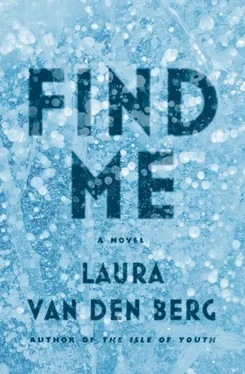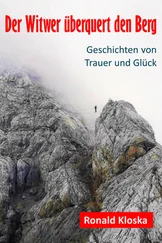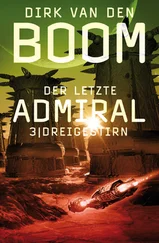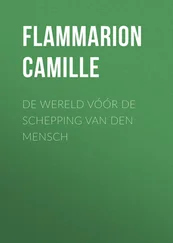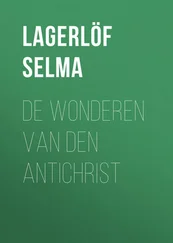Mud sliding down a mountain in springtime, as Dr. Bek once said, his hands making that little dive.
She remembered the white stretcher that carried her out of the stairwell, the hands that fastened the straps. The circle of freckles, the knuckles soft with hair, the scar on the thenar, the crooked ring finger. All these hands working in harmony, as though they belonged to the same body. The smell of salt.
In her memory, the orange coast guard helicopter was noiseless. She only remembered the water churning white beneath her and the sensation of being lifted and then lifted higher and the ocean looking like an enormous blue disc that stretched on into eternity.
* * *
In Harrisburg, Marcus gets off the bus with me. He has no place to go. I have no one else to go with. The choice to leave this bus together, to get away from this lost driver, who took all night to find Harrisburg, into the light of the day, is so easy it doesn’t feel like a choice at all.
The morning is pale and cold. All the buses are going west or north; nobody seems to want to go south. When I say “Florida,” the drivers look at me like I’ve asked if a bus can swim across the ocean, if a bus can take us to Hawaii. Finally we get on a bus headed for Charleston, West Virginia. It takes eight hours to get there and by the time this new city is in sight, the afternoon is winding down into dusk.
We pass yet another river, the Kanawha, according to the signs, and a bronze statue of a man with a sword. All cities, I’m learning, are filled with their monuments.
With the money I earned in Kansas City, we get a room at an Econo Lodge. The lobby is cluttered with fake ferns, as though someone wanted to give the appearance of entering a jungle. At the front desk, there is a stack of brochures that tell us about the history of the Econo Lodge. The Econo Lodge was founded in Norfolk, Virginia, by a man named Vernon Myers and his son, Vernon Junior. They were the first motel chain to put beds on boxes instead of legs, an innovation in motel management at the time.
I close the brochure and have a funny thought: does anyone care about history anymore?
Our room is small and dark and smells like chlorine, even though there is no swimming pool. I’m tired in a way that feels permanent. I take off my sneakers. My toes are swollen, the pads tender. On my soles I find blisters filled with white fluid and think about the barnacles hugging the bottom of my mother’s ship. If you open barnacles up, do you find something soft inside?
Our room has double beds with forest green comforters and headboards that are slabs of honey-colored wood. In the center of each headboard, there is a lattice cut of a bear walking through a forest. We sit on a bed, facing each other, and Marcus tells me about an exercise that can help you find a person you are looking for. It goes like this:
First, close your eyes and picture a movie screen. You are sitting in the audience, in the dark of the theater. Imagine this person appearing on the screen. See her face. Second, imagine a phone booth in the corner of the screen. See the doors to the booth open. Hear the phone ringing. Third, see yourself leaving the audience and entering the screen. See yourself answering the ringing phone. See yourself saying, Hello, where are you? Imagine you are hearing this person speaking back.
In this imaginary theater, I sink into the seat and wait for my mother to appear.
“How did it go?” Marcus asks when I open my eyes.
I don’t tell him that I couldn’t get past my mother’s face on the movie screen, couldn’t get to the booth and the ringing phone. My imagination is only feeling so cooperative.
“It went,” I say.
In the evening, Marcus wants to walk, to move: on the buses, we sat still for unnaturally long periods of time. We have energy stored inside us. We go out into the streets and watch clouds slip across a fat moon.
At this hour in Boston, on the brink of dusk, the windows in the buildings would start to shine bright as jewels. Here the skyline is low and the windows stay dark.
We wander down a broad empty street, the river, the Kanawha, on one side. We find our way to a white building with columns and a domed roof. It looks like an official building of some kind, powerful and secretive. I’ve forgotten the gardening gloves and my hands are cold. We walk up the steps and stand between the columns and look out at the river winding through the powdery blue light.
We continue on, under an overpass, the concrete pillars stained with bird shit, where we can hear the low hum of traffic. We find a little park with a fountain in the center. The tops of the trees are flat and dark like mushroom caps. They cast large shadows on the ground. The ice-crusted grass has become a net for trapping cigarette butts and the metal tongues of beer cans. The fountain is dry. Green pennies are stuck to the bottom. The paint is cracked and tiny weeds are forcing their way through the concrete. We climb into the base of the fountain and look out at the world around us.
“I was in a Hospital,” I tell Marcus. “I didn’t think I was ever going to leave.”
I stand there and absorb the force of that feeling. It is a physical recognition, a warm pressure in the center of my belly. In the Hospital, in the unending cold of winter, I began to believe that I would never again see another city or park or monument or river. I began to believe that version of my story, but that version turned out to be wrong, because here I am in the capital of West Virginia, with Marcus, on my way to find my mother.
I should be free of that feeling now, hundreds of miles from the Hospital, but the shadow of it hangs over me, like there’s a part of me that is still locked up and will never be anything but locked up.
“You got out.” Marcus rubs his plastic lips. “You’ll always get out.”
“I got out,” I say, hoping to convince that locked-up part of myself.
I jump onto the edge of the fountain. I place my hands on my belly. I feel the warm pressure building. I stare out into the night and scream and am stunned by my own loudness. Marcus jumps up beside me. He grabs my hand, hot and slick, and we scream together. I see our voices rising into the trees and getting tangled up in the branches, making nests of sound.
Eventually we walk away, calling out everything we know about rabbits. Rabbits are excellent at leaping and digging and running. For their entire lives, their teeth keep growing. They can live everywhere except for in Antarctica. They can infect people with rabbit fever, a disease that makes the patients sweat and itch. They like the dark. They do not like to be alone.
Just when the city is starting to feel like it belongs to us, the city sets us straight.
We are away from the park, wandering down a narrow side street, when a mob of people dressed in black, their faces painted a ghoulish white, rush out from behind the corner of a building. A cavalry of acrobats, I think, even though I know enough to know “cavalry” and “acrobat” are not two words that belong together.
We stop in the center of the street. These people are charging toward us and before we can escape, we are in the thick of the pack. I see holes in their black shirts and patches where the white paint has faded, revealing the humanness beneath. Wild eyes. Beneath us the asphalt rumbles. Marcus is carried away from me. I see the yellow fluff spilling from his coat. We cast our arms forward like swimmers in a roiling sea, trying to fight our way back to each other.
These people don’t stop or speak or try to take us with them. They run with animal indifference, like those horses in Paola. I don’t know who they are or what they have decided to be.
For a second, I am tempted to follow them.
Читать дальше
